Dmitry Babichev
SIERRA, Inria, PSL
Efficient Primal-Dual Algorithms for Large-Scale Multiclass Classification
Feb 11, 2019
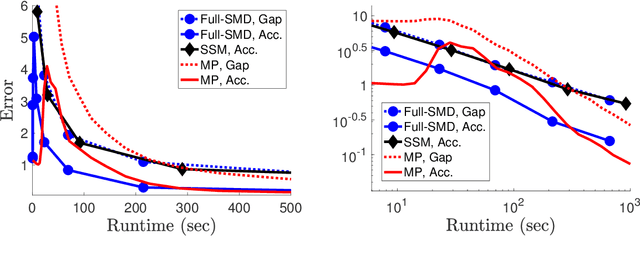

Abstract:We develop efficient algorithms to train $\ell_1$-regularized linear classifiers with large dimensionality $d$ of the feature space, number of classes $k$, and sample size $n$. Our focus is on a special class of losses that includes, in particular, the multiclass hinge and logistic losses. Our approach combines several ideas: (i) passing to the equivalent saddle-point problem with a quasi-bilinear objective; (ii) applying stochastic mirror descent with a proper choice of geometry which guarantees a favorable accuracy bound; (iii) devising non-uniform sampling schemes to approximate the matrix products. In particular, for the multiclass hinge loss we propose a \textit{sublinear} algorithm with iterations performed in $O(d+n+k)$ arithmetic operations.
Constant Step Size Stochastic Gradient Descent for Probabilistic Modeling
Apr 16, 2018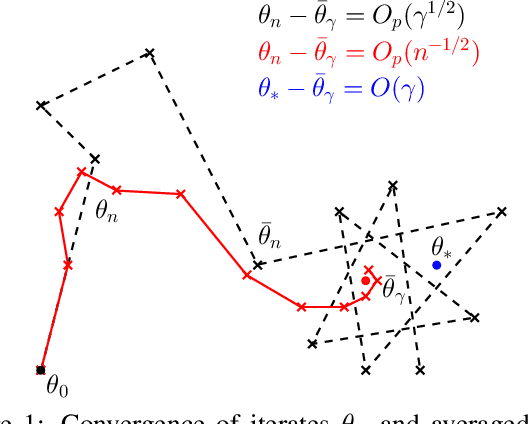
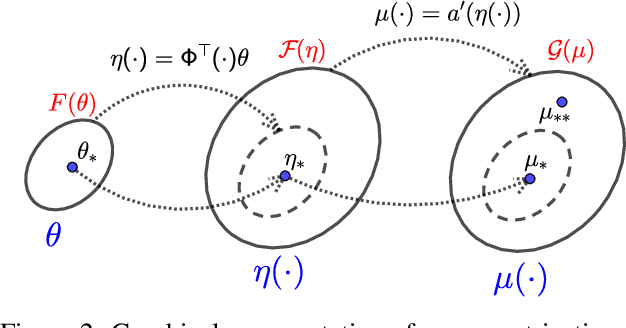
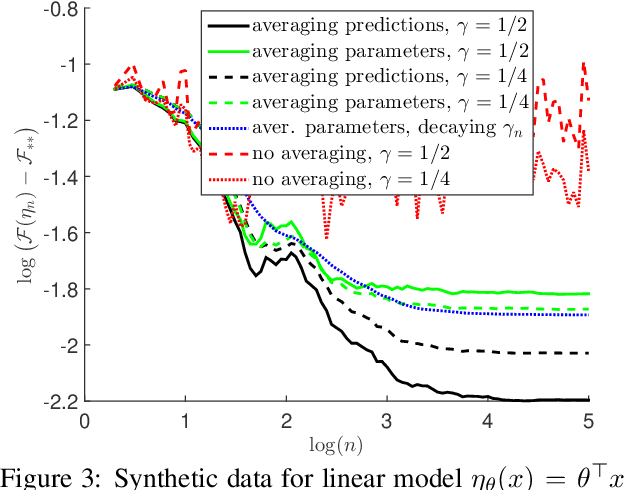
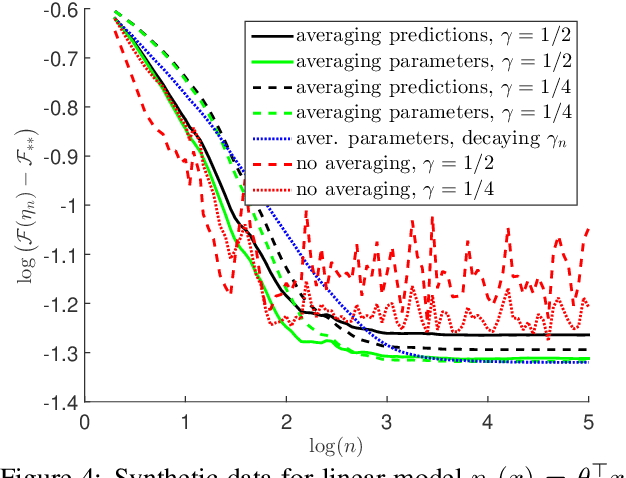
Abstract:Stochastic gradient methods enable learning probabilistic models from large amounts of data. While large step-sizes (learning rates) have shown to be best for least-squares (e.g., Gaussian noise) once combined with parameter averaging, these are not leading to convergent algorithms in general. In this paper, we consider generalized linear models, that is, conditional models based on exponential families. We propose averaging moment parameters instead of natural parameters for constant-step-size stochastic gradient descent. For finite-dimensional models, we show that this can sometimes (and surprisingly) lead to better predictions than the best linear model. For infinite-dimensional models, we show that it always converges to optimal predictions, while averaging natural parameters never does. We illustrate our findings with simulations on synthetic data and classical benchmarks with many observations.
 Add to Chrome
Add to Chrome Add to Firefox
Add to Firefox Add to Edge
Add to Edge